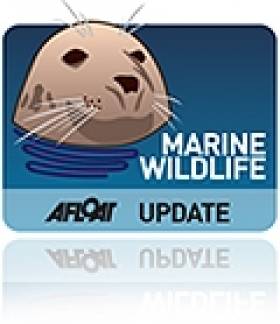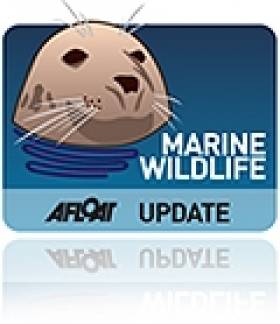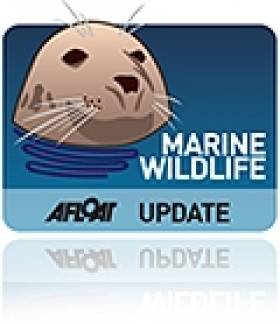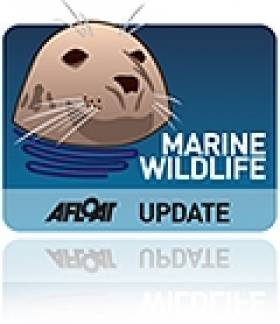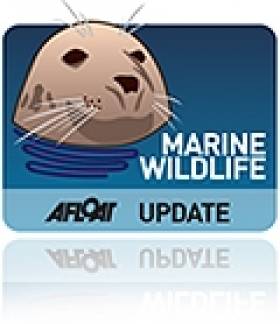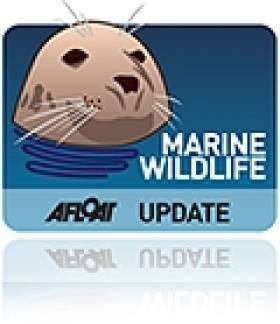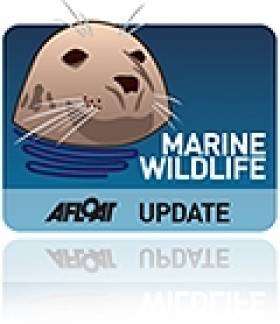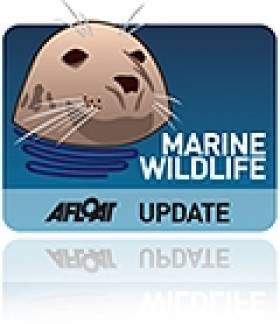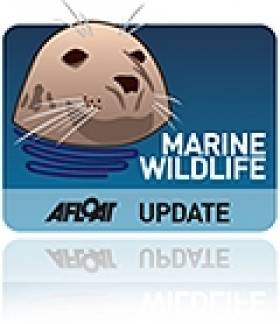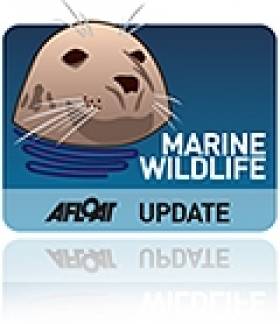Displaying items by tag: seals
More Dead Seals Wash Up On Wexford Beach
#MarineWildlife - The Gorey Guardian reports that three seal carcasses were found washed up on Duncannon beach in Co Wexford this past Tuesday (22 January).
The National Parks and Wildlife Service is presently awaiting lab results to determine the seals' cause of death, a situation conservation ranger Tony Murray describes as "quite unusual".
He added that the carcasses of the three marine mammals were freshly dead and found to have no external injuries
As previously reported on Afloat.ie, the Irish Seal Sanctuary last month called for immediate action after a total of 12 seal carcasses were found dead on beaches in Wexford and Waterford in the span of a single week.
Four Decapitated Seals In Tramore Add To Disturbing Total
#MarineWildlife - The Irish Seal Sanctuary is calling for immediate action by the National Parks and Wildlife Service (NPWS) after the discovery of four more seal carcasses in Tramore on Friday 21 December.
The four decapitated marine mammals reported by the Irish Examiner add to the eight found dead in Wexford and Waterford over recent days, bringing to 12 the total for the week.
Irish Seal Sanctuary spokesperson Johnny Woodlock told the Examiner: "It's an evolving situation down there. Only last night, I heard there were a few dead porpoises washed in. They are also a protected species.
Woodlock said yesterday (22 December) that he was still awaiting photographs in order to confirm the number of dead seals.
The disturbing turn of events echoes the reported "swing of activity" in seal fatalities around Ireland earlier in the year - the most horrific of these being the shocking scene of two baby seal heads nailed to a sign outside the Dingle Wildlife and Seal Sanctuary in June.
Renewed Concerns For Seals After Carcasses Found In South-East
#MarineWildlife - The Irish Seal Sanctuary has raised concerns after eight seals were found dead in Wexford and Waterford in recent days, as RTÉ News reports.
A shocking total of six carcasses were discovered near Fethard-on-Sea alone, while one apiece were found near Dunmore East and in Tramore - the latter reportedly decapitated.
The news comes just a few months after Johnny Woodlock of the Dingle Wildlife and Seal Sanctuary warned of a "swing of activity" in seal fatalities around Ireland earlier this year.
The most horrific of these incidents was the grisly scene of two baby seal heads nailed to a sign outside the Dingle wildlife sanctuary, accompanied by graffiti daubed in red paint reading 'RIP Cull' - presumed to be a reference to local fishermen's urging for a reduction of seal numbers in the area.
More recently, reports from Castlerock in Co Derry suggested that a dead seal found on the beach suffered a gunshot wound to the head.
All seals in Ireland are protected under national and EU law.
The Irish Seal Sanctuary is currently urging the National Parks and Wildlife Service to launch an investigation into these latest incidents, and is appealing to the public for information on these or other seal deaths.
Isle of Man Begins Seal Pup Survey
#MARINE WILDLIFE - The Manx Wildlife Trust has commenced its annual survey of seal pups on the Calf of Man, as Isle of Man Today reports.
Volunteers will be on watch at the island nature reserve, off the southwest coast of Man proper in the Irish Sea, for the next four weeks to develop a complete picture of the area's grey seal pupping season.
As of Sunday 14 October, some 14 seal pups have already been born, which is a few less than last year, according to marine officer Eleanor Stone - though she notes "there are still many pregnant females around, just waiting for their time to give birth".
Stone, who is volunteering on the first week-long shift, said the trust has already spotted six seals recognised from previous years, and it is expected many more will be returning to the sheltered beaches of the islet.
Isle of Man Today has more on the story HERE.
Canada Watching EU Seal Cull Plans With Interest
#MARINE WILDLIFE - The Globe and Mail reports that Canada is keeping tabs on an EU plan to "manage" Europe's seal population amid growing controversy over the issue.
Last month the European Parliament approved a resolution on the Common Fisheries Policy that called for the European Commission to investigate the impact of "natural predators such as sea lions, seals and cormorants" on the reduction of fish stocks and draw up plans to regulate their numbers.
Canada's sealing industry claims this about-face in EU policy is hypocritical considering Europe's ban on commercial seal products three years ago, as well as its longstanding criticism of the Canadian seal hunt.
Already Scotland has approved a cull that has granted licences to kill over 1,000 seals on its coastline this year alone. And fishermen in Ireland, particularly on the west coast, are calling for the Irish authorities to take similar action.
Afloat.ie has previously reported on the tensions between fishermen and marine wildlife campaigners over the impact of protected seal populations on fish stocks.
Over the summer, the Dingle Seal Sanctuary claimed that a number of horrific reports of illegal seal killings committed by culprits unknown are part of a "swing in activity" since the start of the year - although the National Parks and Wildlife Service said it has not recorded any increase.
Fishermen in Kerry have come out in condemnation of these illegal killings, in particular the barbaric scene in which two baby seal heads were nailed to signs outside the Dingle sanctuary in early June.
However, they maintain that a cull of the local grey seal population is necessary, claiming they are "over-protected" and can consume as much as 10kg of fish each per day, resulting in depleted stocks of hake and haddock, as well as posing a threat to salmon conservation measures.
The Globe and Mail has more on the story HERE.
NI Seal Death Prompts Investigation
#MARINE WILDLIFE - An investigation is underway to determine the cause of death of a seal found on a Derry beach this week.
As UTV News reports, the seal was found on Castlerock strand on Wednesday afternoon, and local reports suggest it suffered a gunshot wound to the head.
In a statement, the Northern Ireland Environment Agency (NIEA) confirmed that the carcass had been removed for a postmortem to determine the cause of death, and that the PSNI has also been made aware of the matter.
As previously reported on Afloat.ie, the Dingle Seal Sanctuary commented on what it saw as a "swing in activity" in illegal seal killings around Ireland earlier this year - following a shocking incident at the sanctuary in June.
Meanwhile, Northern Ireland's Green Party warned in March that "rogue" anglers in Co Down may shoot seals they accused of consuming their fish stocks, after the protected marine wildlife managed to enter a section of the River Quoile.
#MARINE WILDLIFE - The recent horrific reports of seal killings are but part of a "swing in activity" over the past few months, as TheJournal.ie reports.
Gardaí continue to investigate the shocking incident in Dingle two weeks ago, where the heads of two baby seals were found nailed to signs outside a wildlife sanctuary - an act condemned by fishermen in spite of their support for a cull of seals along the West coast.
Just days later, a husband and wife kayaking at Knockadoon head in East Cork were "sickened to the core" by the sight of two seals who had been shot.
And last week the Dingle Seal and Wildlife Sanctuary received calls of two separate seal deaths around the coast, one reporting a headless seal discovered at Whiting Bay in Waterford.
The incidents follow fears from earier this year of an illegal cull of marine wildlife after a two seals were found dying from bullet wounds on Tramore Beach in Co Waterford.
“There has been a swing in activity in recent months,” said Johnny Woodlock of the Dingle Seal Sanctuary, who added that many of the seals found dead "have apparent gun shot wounds" though it is difficult to determine the cause of death without an autopsy.
The National Parks and Wildlife Service (NPWS) says it has not recorded any increase in illegal seal killings off Cork or Kerry. But Woodlock claims this is because "there is nobody keeping records of dead seals washing up on beaches".
An NPWS survey of coastal seal numbers is ongoing, and exact figures have yet to be published.
TheJournal.ie has much more on the story HERE.
Seal Heads Sicken Staff at Dingle Wildlife Sanctuary
#MARINE WILDLIFE - Staff at the Dingle Wildlife and Seal Sanctuary were subject this morning to the gruesome sight of two baby seal heads nailed to signs outside the facility.
According to the Irish Independent, the grisly scene was accompanied by a sign reading 'RIP Cull' in red paint, presumed to be a reference to local fishermen's urging for a reduction of seal numbers in the area.
Last year Afloat.ie reported on Kerry fishermen's call for a cull of the "overprotected" local grey seal population over claims that they eat up to 10kg of fish a day.
And earlier this year, fears were growing of an illegal cull of marine wildlife after a two seals were found dying from bullet wounds on Tramore Beach in Co Waterford.
"It was sickening," said the sanctuary's Ally McMillan of the incident. "I wanted to be sick when I saw them."
Gardaí in Dingle removed the seal heads and sign as part of their investigation.
Meanwhile, the Irish Examiner reports that animal rights group ARAN has put up a €5,000 reward for anyone with information leading to the arrest or conviction of those responsible for the killing.
“Animal abusers are cowards, and we’re hoping this reward will apprehend those responsible for this most sickening act of animal abuse,” said ARAN spokesman Stephan Wymore.
'Rogue' Anglers May Shoot Seals Threatening NI Fish Stocks
#MARINE WILDLIFE - Northern Ireland's Green Party has warned that "rogue" anglers may shoot seals that are consuming their fish stocks unless they are relocated, the Belfast Telegraph reports.
The protected seals have been getting into the River Quoile in Co Down, allegedly by way of a damaged fish pass, and decimating the area's fish stocks - much to the consternation of local anglers.
Earlier this week Leisure Minister Carál Ní Chuilín confirmed in a response to a question from Green Party MLA Steven Agnew that department officials have requested the Rivers Agency to carry out repairs on the fish pass.
But she also said that no action can be taken to remove seals from the river "without the approval of the Northern Ireland Environment Agency", adding that her department "does not have the specialist knowledge and equipment to remove the seals".
A Green Party spokesperson described the repair work as "absolutely vital because even if the seals are safely removed from the Quoile they will only make their way back in if the fish pass is not repaired.
"And a rather worrying consideration is that a very small rogue element would be prepared to shoot the seals if a solution is not forthcoming.”
Seal shootings have been much in the news as of late, with gardaí in Waterford investigating attacks on four animals in Tramore.
Garda Investigates Waterford Seal Shootings
#MARINE WILDLIFE - Newstalk reports that gardaí are investigaing the shooting of seals on a Waterford beach.
As previously reported on Afloat.ie, fears are mounting of an illegal cull of marine wildlife in the area after a seal and a dolphin were found dead from gunshot wounds within a day of two seals being discovered with similar wounds.
All four animals were found along the same stretch of Tramore Beach late last month.
A spokesperson for the Irish Seal Sanctuacy pointed the finger at an illegal cull allegedly carried out by local fishermen.
The Irish Wildlife Trust has welcomed the Garda investigation into the incidents, and has called on the public to report any relevant information they may have.


























